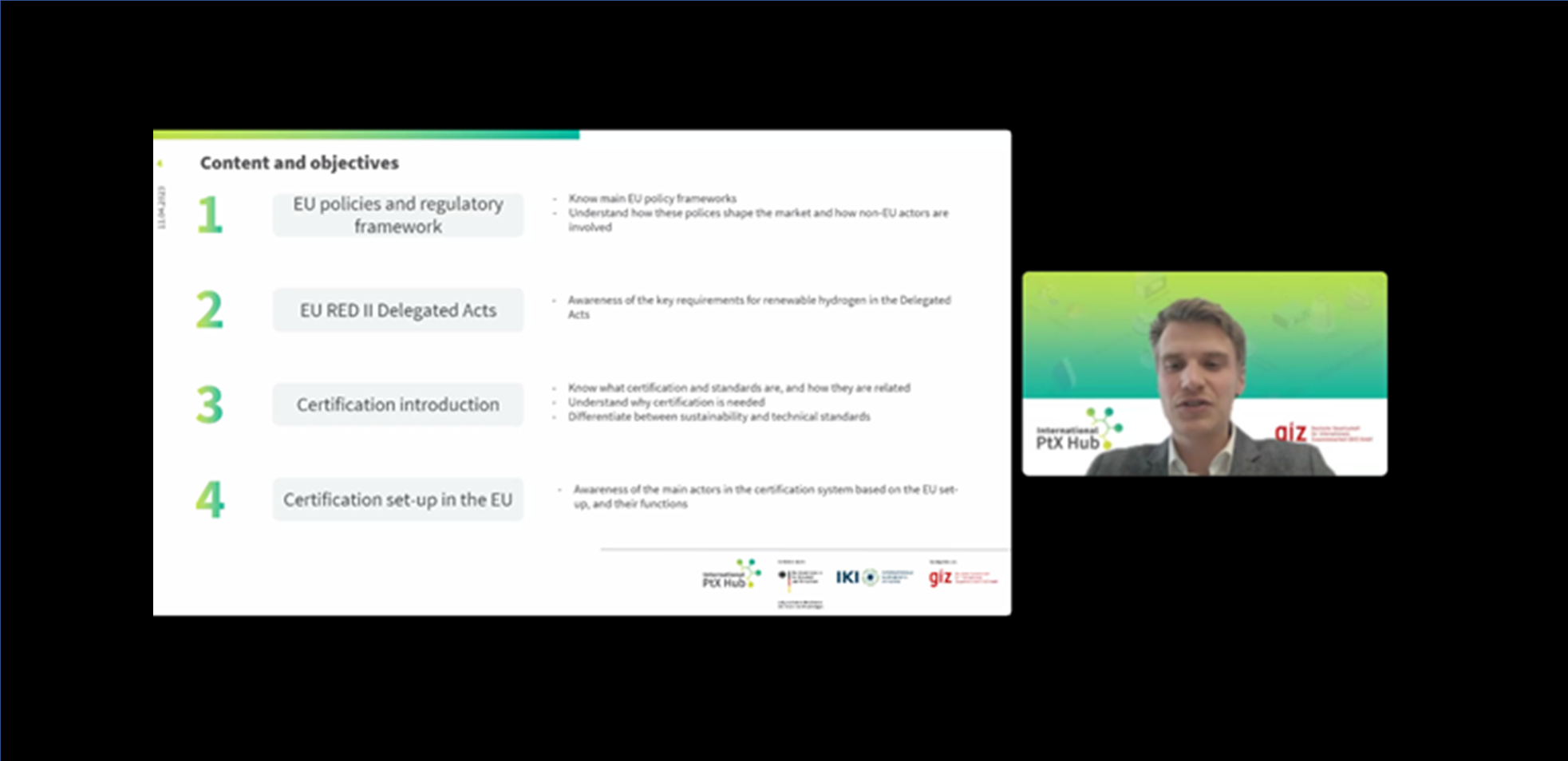Which product requirements exist at the EU level which Algeria should be aware of for its future export of hydrogen from renewable electricity? How does the certification process to fulfil these requirements work? These were two key questions that Jan-Hendrik Scheyl, PtX Hub Expert for Certification & Sustainability answered in a webinar dedicated to the EU regulatory framework and certification on April 11th 2023, with energy professionals in Algeria.
The European Union, as part of its latest climate policy REPowerEU 2022, set itself an ambitious target to match its own production of 10 million tons of renewable hydrogen by 2030 with the import of an equal amount from outside of Europe. Two Delegated Acts (X and X) on renewable hydrogen, adopted by the European Commission in February 2023 are supplementing Articles 27 and 28 of the EU Renewable Energy Directive II (2018). They set out requirements that may affect countries, such as Algeria, looking to export hydrogen “of renewable origin” to the EU. In essence, they describe options of when electricity for hydrogen production is considered as fully renewable and outline how to account for associated greenhouse gas emissions (GHG) emissions.
In fact, Algeria announced the roadmap of its national hydrogen strategy in late March 2023 with the overarching objectives to expand its renewable energy capacity, export cleaner energy and contribute to its economic development. The strategy specifically targets the production and export of 30 to 40 TWh of (gaseous and liquid) hydrogen and derivatives by 2040, as part of which it aims to supply the European market with nearly 10% of its needs in hydrogen. Already a producer and consumer of fossil-fuel based grey hydrogen, Algeria plans to bolster its production of clean and renewable hydrogen. In this regard, the RED II Delegated Acts carry important orientation for stakeholders in Algeria to consider in building up the sector.
During the webinar, Jan-Hendrik Scheyl offered an overview of key EU climate and energy policies before delving into the two Delegated Acts and its requirements around assessing GHG emissions savings and criteria for hydrogen to qualify as “of renewable origin”. In a second part, he elaborated on the relevance and functions of certification systems, followed by an overview of the certification landscape in the EU specifically. He stressed that although these requirements focus on an EU context, it is important for non-EU countries to be aware of these rules and procedures in order shape and develop a country specific hydrogen/PtX narrative that is looking outwards to Europe and inwards to Algeria at the same time. The recording of the session can be viewed below.
The webinar was part of a jointly implemented webinar series by the Deutsche Gesellschaft für Internationale Zusammenarbeit (GIZ) GmbH, the German Development Bank KFW and the Hamburg University of Technology, commissioned by the Federal German Ministry Econonic Cooperation and Development (BMZ) and the Federal German Ministry of Economy and Climate Action (BMWK).
Recording of the Webinar on April 11, 2023:
Presentation on EU Requirements and Certification by Jan-Hendrik Scheyl:

To learn more about the PtX Hub’s activities in Algeria, visit our country page.
To read more about the EU Requirements for Green Hydrogen and its derivatives, view our recently published Briefing.
